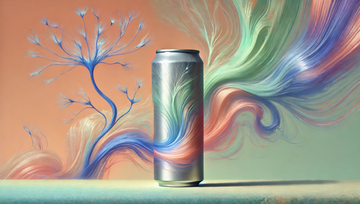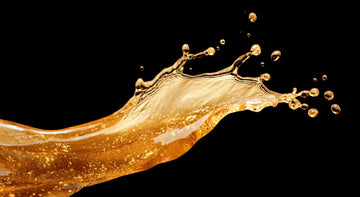By Nikhail Thakker, Dr. Christine Wong, PhD
In an ideal world, you're able to manage it all—family, work, health, and goals—effortlessly. But when the all-too-familiar feeling of having no time and no energy creeps in, how can you maximize them to reach your full potential?
Introducing Productivity, a term that refers to the amount of output produced (or work done) from the input (i.e. our time, energy, and mental capacity). So what can you do to prime your mind to be more productive? Continue reading to learn how.

PHOTOGRAPH BY SASHA FREEMIN, UNSPLASH
1. Support your Circadian Rhythms:
i. Optimizing your Morning Routine
If you aren’t familiar with Circadian Rhythms (1), they are the patterns of wakefulness and sleeping that your body undergoes in a 24-hour cycle – heavily impacted by your exposure to light and darkness. And, it goes without saying that how you start our day and whether you’re resting well will translate to how you feel and how well you perform.
Once you wake up, those morning hours are invaluable, and using them effectively will prime you to seize the day. Ideally, your morning will consist of getting exposure to natural light for at least 15 minutes to regulate your circadian rhythms, priming yourself for increased alertness and boosted mood (2).

PHOTOGRAPH BY MANKI KIM, UNSPLASH
Another healthy habit to start your morning with is hydration. Through the night, You lose plenty of fluids and naturally wake up in a state of dehydration–often accompanied by that morning groggy feeling.
Hydration reduces brain fog, improves mental clarity, and enhances overall alertness. While coffee is a popular morning drink, it’s in fact a diuretic and can dehydrate you further. If you do drink coffee, balance it with water or try Flojo drinks for a hydrating energy boost.

PHOTOGRAPH BY ADI GOLDSTEIN, UNSPLASH
ii. Prioritizing Quality Sleep
We all know the importance of 6 to 8 hours of sleep. You’ve also probably felt the effects of poor sleep. High quality sleep is crucial for restoring creativity, consolidating memories, and clearing out brain waste.
The glymphatic system (our natural waste management system) is most active when we’re sleeping – our brain undergoes a deep cleaning to filter out any waste that accumulates during daily processing. When well-rested, we’re happier, more energized, and focused.
From athletes reaching the peak of their game to parents looking to find their best energized self, performing at your best requires quality sleep. But what does good sleep look like, and how can you achieve it?

PHOTOGRAPH BY GETTY IMAGES
Cut late afternoon caffeine
A well-known culprit for inhibiting healthy sleep cycles is many people’s trusty best friend, caffeine. While it may increase energy in the short term, unfortunately, if consumed too late in the afternoon or evening, it can become disruptive to your sleep.
Caffeine works by blocking adenosine receptors that promote rest, which can result in rest deprivation (3). A recent study exhibited damaging effects on sleep by consuming caffeine at both 3 and 6 hours before bedtime (4). Ideally, your nightly slumber should span 6-8 hours, allowing for 4 to 6 sleep cycles – necessary for your body to fully recover and recharge (5).

PHOTOGRAPH BY ROB HAMPSON, UNSPLASH
Turn off your phones before bedtime
Another habit worth kicking is phones before bed. Avoiding screens before bed will promote deep sleep, supporting better quality sleep and rest (6). It also helps avoid blue light exposure, which has the same energizing effect on your circadian rhythms as daylight – not what you want for deep, restful sleep.

PHOTOGRAPH BY ADITYA SAXENA, UNSPLASH
2. Improving Headspace
Focus and productivity flourish with a calm, clear mind. If overwhelming workloads have you stuck, try these easy tips that can ignite your productivity:
The power of breaks
As counterproductive as it may seem at first, taking regular breaks can actually enable you to be more efficient and achieve better focus (7). Short breaks, that are less than 10 minutes, have been shown to reduce fatigue and spark productivity again after returning from a break.

PHOTOGRAPH BY AREK ADEOYE, UNSPLASH
Physical activity to clear the mind
During longer breaks, or in downtime, breaking a little sweat and doing some exercise can do the world of good for your focus and productivity. Multiple studies have provided evidence that exercising frequently combats feelings of stress and anxiety, and also enhances your mind’s ability to adapt and be creative.
Declutter your space
A clear workspace also translates to a clear mind. Research shows physical clutter causes mental distractions and lowers productivity (8). So it’s in your best interest to simply put things away and out of sight that you don’t need access to, to help you stay focused on your main task.

PHOTOGRAPH BY MAGNET.ME, UNSPLASH
3. Combatting Procrastination
We weren’t going to tackle productivity in an article without addressing Public Enemy No. 1, productivity’s kryptonite: Procrastination – which has pestered all of us at some point.
Completing work that’s been put off for a long time often evokes a medley of feelings – a jumble of relief mixed with regret and sometimes self-doubt in our ability to take control. Procrastination, in part, happens because of the internal conflict between our Limbic System and Prefrontal Cortex in the brain (9).
Our Limbic System simply craves instant gratification and pleasure. It looks at all the work on our plate and thinks, “No, thank you.” The Prefrontal Cortex, on the other hand, is the driving force behind our self-control, logic, and pragmatism, prompting us to get that work done.

PHOTOGRAPH BY OSCAR NORD, UNSPLASH
Limit distractions
Oftentimes we let our Limbic System win, resorting to quick dopamine fixes to put off daunting tasks. You may have found yourself doom scrolling or binge-watching shows hours on end. To fight procrastination and give your Prefrontal Cortex the upperhand, try limiting or removing yourself from those personal distractions, like leaving your phone in another room or setting an alarm to limit your screen time.
Discover Your New Productivity Sidekick
Putting these productivity hacks into practice, over time, will help make being productive second nature. If you’re looking for a refreshing pick-me-up to kickstart your flow state, check out Flojo drinks for a plant-powered productivity lift, with a low caffeine, low sugar formula to keep those circadian rhythms in check, and nootropics and adaptogens to boost your brain.
Works Cited
1. Circadian Rhythm | Definition, Examples, & Facts | Britannica. Encyclopædia Britannica; 2024.
2. Nunez, K.; Cherian, V. Should You Drink Water First Thing in the Morning? Here Are 8 Healthy Perks, According to MDs. Real Simple. https://www.realsimple.com/health/preventative-health/benefits-of-drinking-water-in-morning (accessed 2024-08-16).
3. McCallum, K. Caffeine & Sleep: How Long Does Caffeine Keep You Awake? Houstonmethodist.org. https://www.houstonmethodist.org/blog/articles/2021/oct/caffeine-sleep-how-long-does-caffeine-keep-you-awake. 2023.
4. Drake C; Roehrs T; Shambroom J; Roth T. Caffeine effects on sleep taken 0, 3, or 6 hours before going to bed. J Clin Sleep Med 2013;9(11):1195-1200.
5. Singh, A; Suni, E. Stages of Sleep: What Happens in a Sleep Cycle. Sleep Foundation. https://www.sleepfoundation.org/stages-of-sleep. 2023.
6. Why You Should Ditch Your Phone Before Bed. Cleveland Clinic. https://health.clevelandclinic.org/put-the-phone-away-3-reasons-why-looking-at-it-before-bed-is-a-bad-habit (accessed 2024-08-16).
7. Albulescu, P.; Macsinga, I.; Rusu, A.; Coralia Sulea; Bodnaru, A.; Bogdan Tudor Tulbure. “Give Me a Break!” a Systematic Review and Meta-Analysis on the Efficacy of Micro-Breaks for Increasing Well-Being and Performance. PLoS ONE 2022, 17 (8), e0272460–e0272460. https://doi.org/10.1371/journal.pone.0272460.
8. McMains, S.; Kastner, S. Interactions of Top-down and Bottom-up Mechanisms in Human Visual Cortex. Journal of Neuroscience 2011, 31 (2), 587–597. https://doi.org/10.1523/jneurosci.3766-10.2011.
9. Freedom. The Neuroscience of Procrastination, Habits, and the Flow State. Freedom Matters.https://freedom.to/blog/the-neuroscience-of-procrastination-habits-and-the-flow-state/ (accessed 2024-08-16).




